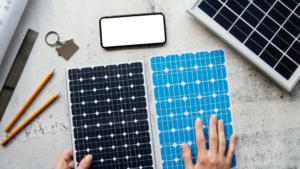Conserve Energy and Reduce Electricity Bill During Summer
Introduction:
As the summer months roll in, the rising temperatures often lead to increased energy consumption, translating to higher electric bills. However, with a few mindful tweaks to your daily routine and home environment, you can significantly reduce energy usage, save money on your energy bill, and contribute to a greener planet. In this blog post, we’ll explore various ways to conserve energy during the summer, focusing on key areas such as cooling systems, water heaters, and appliances.
Table of Contents
ToggleOptimize Your Air Conditioning System:
The air conditioner is a major player in your summer energy consumption. To maximize its efficiency and minimize costs, consider the following tips:
Regular Maintenance: Schedule routine maintenance for your air conditioning system. Clean or replace filters as recommended by the manufacturer to ensure optimal performance.
Smart Thermostats: Invest in a programmable thermostat or a smart home system. This allows you to regulate temperatures more efficiently, adjusting them based on your schedule and preferences.
Seal Leaks: Check for drafts and seal any gaps in windows and doors. This prevents warm air from entering your home and reduces the workload on your cooling system.
Use Fans: Ceiling fans can complement your air conditioner by circulating cool air more effectively. This enables you to set your thermostat a few degrees higher without sacrificing comfort.
Efficient Use of Water Heaters:
Hot water heaters are another significant contributor to energy costs. Here’s how to save energy while maintaining comfort:
Lower Temperature Settings: Set your water heater thermostat to a lower temperature, such as 120°F (49°C). This not only reduces energy consumption but also prevents scalding.
Insulate Your Water Heater: Wrapping your water heater in an insulation blanket can help retain heat, reducing the need for the unit to reheat the water frequently.
Fix Leaks: A leaking hot water faucet can waste both water and the energy used to heat it. Promptly fix any leaks to save on energy costs.
Appliance Efficiency:
Household appliances contribute to energy consumption, especially during the summer when air conditioners are working hard. Consider these tips:
Full Loads: When using appliances like washing machines and dishwashers, wait until you have a full load. Running these appliances with partial loads is inefficient and wastes energy.
Energy Star Appliances: When it’s time to replace old appliances, choose Energy Star-rated models. These appliances meet strict energy efficiency guidelines set by the Department of Energy.
Unplug When Not in Use: Even when turned off, many electronics consume standby power. Unplug devices or use smart power strips to prevent unnecessary energy usage.
Strategic Use of Cooling Systems:
Cooling systems, beyond air conditioners, can play a vital role in conserving energy:
Natural Ventilation: Open windows during cooler parts of the day and night to allow natural ventilation. Cross-ventilation can help maintain a comfortable indoor temperature without relying solely on mechanical cooling.
Use Curtains and Blinds: Keep curtains or blinds closed during the hottest parts of the day to block out the sun’s rays and prevent your home from heating up.
Cold Water Conservation:
Consuming cold water efficiently contributes to energy savings in various ways:
Cold Water Laundry: Washing clothes with cold water not only saves energy but also helps preserve the quality of your clothes.
Cool Showers: Instead of hot showers, opt for cooler ones during the summer months. This not only conserves energy but also helps you stay refreshed.
Conclusion:
Implementing these energy-saving tips not only reduces your environmental impact but also puts money back in your pocket. Conserving energy during the summer is a win-win, benefiting both your wallet and the planet. By making small, mindful adjustments to your daily habits and home environment, you can enjoy a comfortable living space while being a responsible steward of energy resources.









